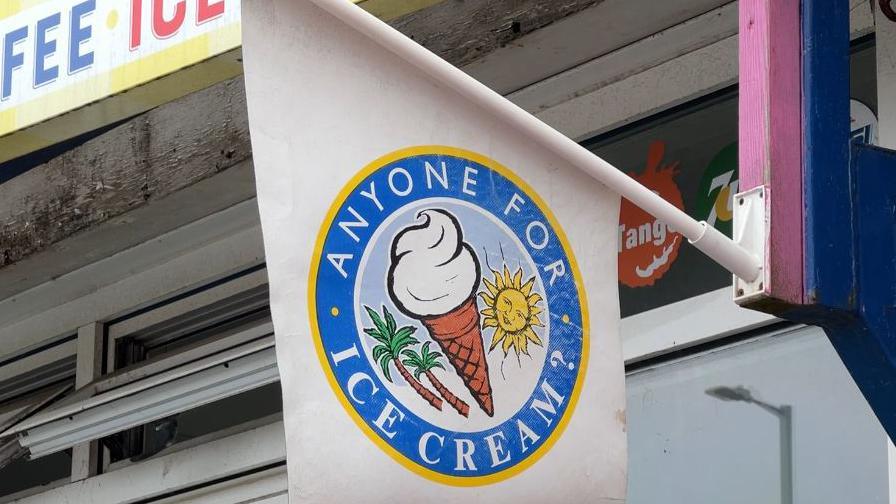Councils among worst for food hygiene inspections
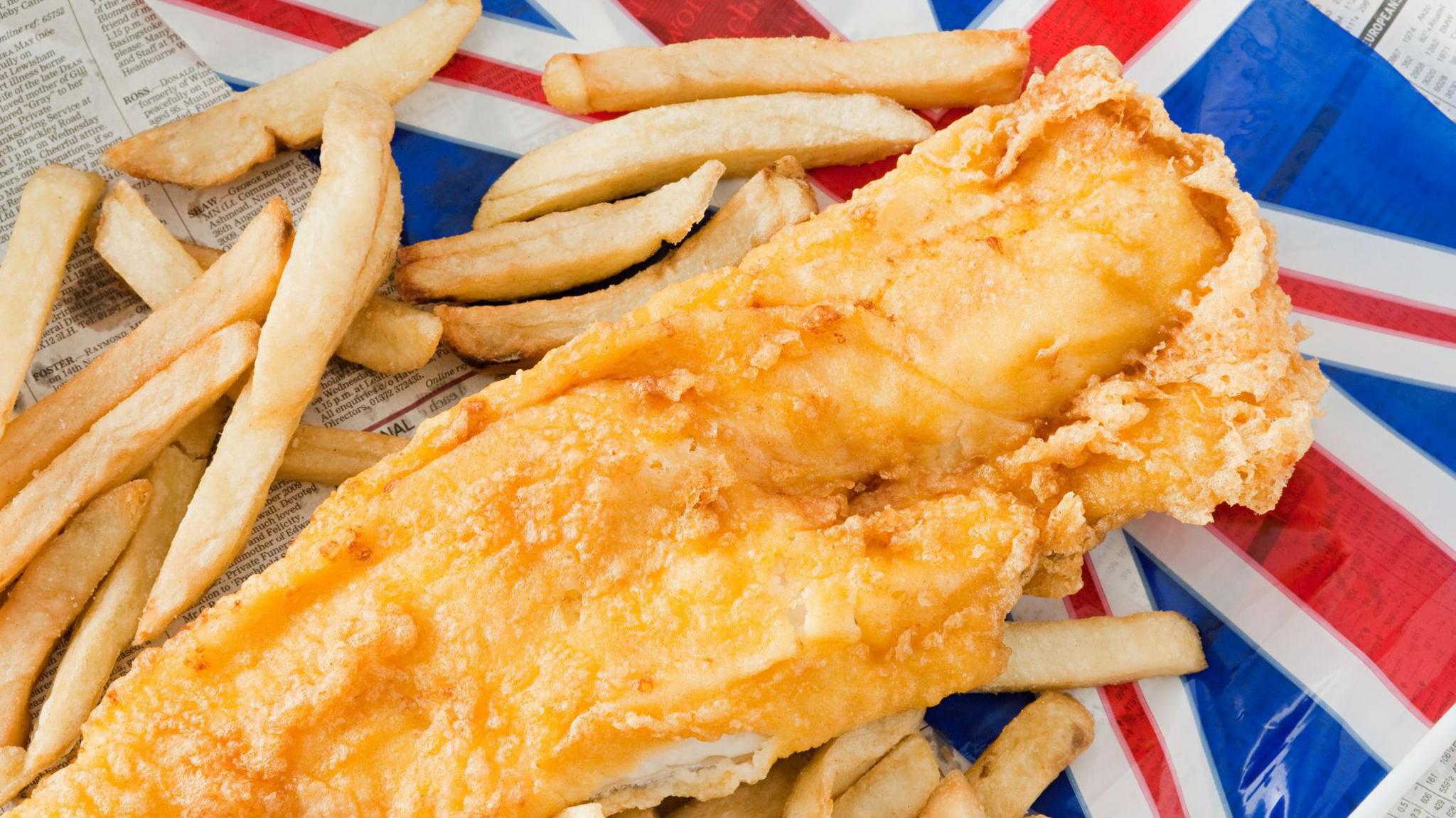
East Lindsey's figures were the third worst in England, Wales and Northern Ireland - behind only Rochford in Essex and Southampton
- Published
East Lindsey and North East Lincolnshire councils are among the worst in England, Wales and Northern Ireland for failing to carry out food hygiene inspections, BBC analysis has shown.
Analysis of Food Standards Agency (FSA), external data revealed that 57% of restaurants and takeaways in East Lindsey had not been inspected for more than two years.
In North East Lincolnshire, the figure was 49.5%.
The councils said there was a backlog as a result of the Covid-19 pandemic and recruitment, as well as IT issues.
According to the BBC's shared data unit findings, one in every five restaurants and takeaways in England, Wales and Northern Ireland had not been inspected for more than two years.
The public services union Unison said it was a "serious public health issue".
FSA guidelines state that most food premises should be inspected between every six months and two years, depending on the level of risk.
In East Lindsey, the figure was 642 out of 1,118.
'Top priority'
In response, Councillor Martin Foster, portfolio holder for environmental services at East Lindsey, said there had been issues regarding "the uploading of our inspection data" due to challenges following the replacement of "our back-office IT system".
The authority, which covers places such as Skegness and Horncastle, said it was working "diligently" to resolve the issue.
Mr Foster added: “We want to emphasise that the data obtained does not fully reflect the comprehensive efforts we are undertaking in food hygiene inspections, particularly establishments which are designated high risk, or are failing to meet a food hygiene rating of three or above.
"Public safety remains our top priority."
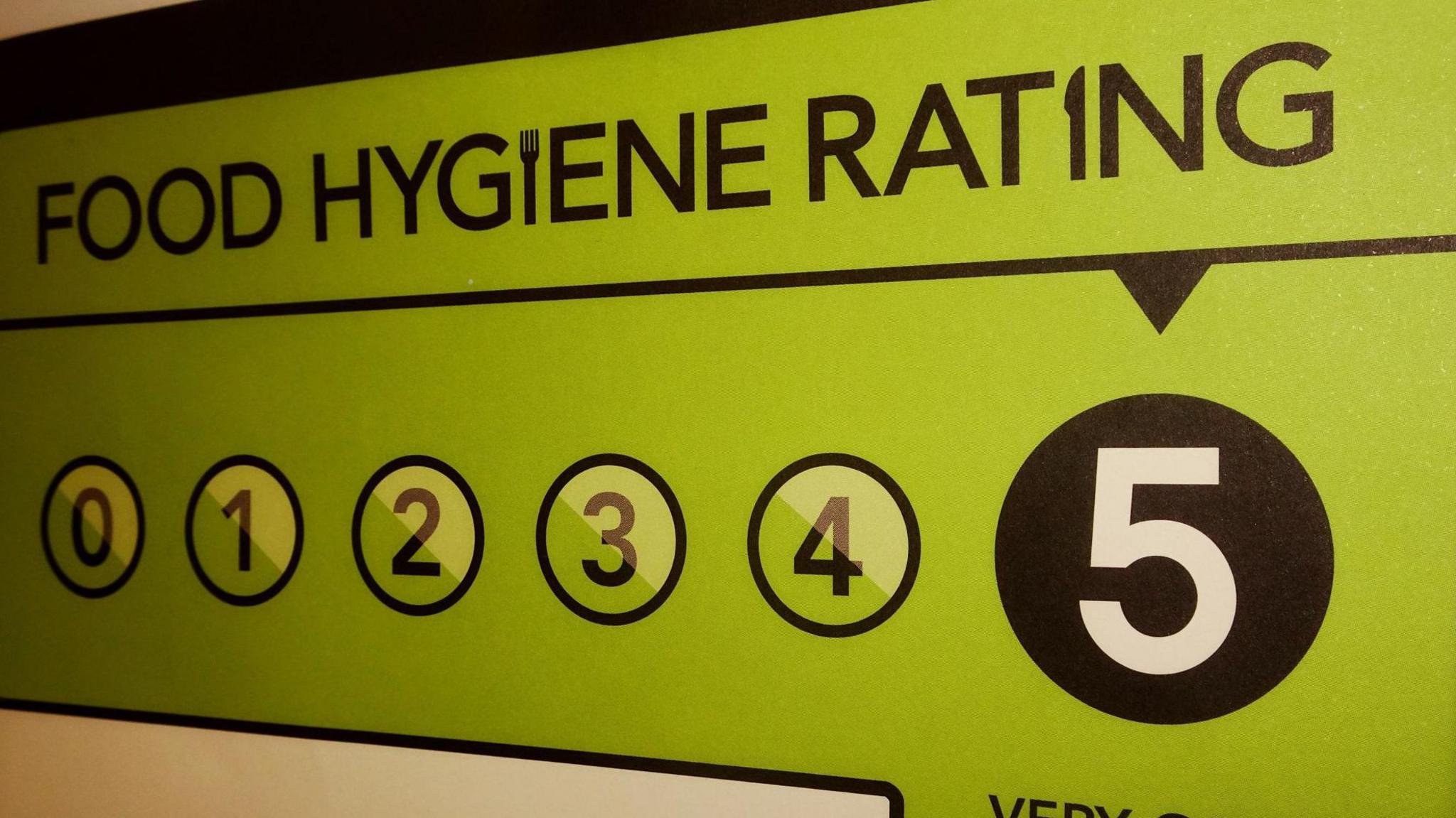
Council-employed teams rate premises on things like cleanliness, pest control and safe storage of food - giving a score between zero and five
Meanwhile, in North East Lincolnshire, 315 out of 636 inspections took place more than two years ago.
A spokesperson for North East Lincolnshire Council said: “Like many other local authorities who faced backlogs due to the pandemic, we’re following post-Covid guidance issued by the FSA.
“Since 2021, the team has grown and investment in this area has increased."
FSA chief executive Emily Miles said councils were generally getting through backlogs of high-risk inspections, which mounted during the Covid lockdowns.
However, she said there were concerns that lower-risk venues and new venues were not being checked.
“It’s something that could be a slow burn to a very uncomfortable and unhelpful situation," she said.
"We have high food standards in this country, but it’s something you won’t know you’ve got until it’s gone."
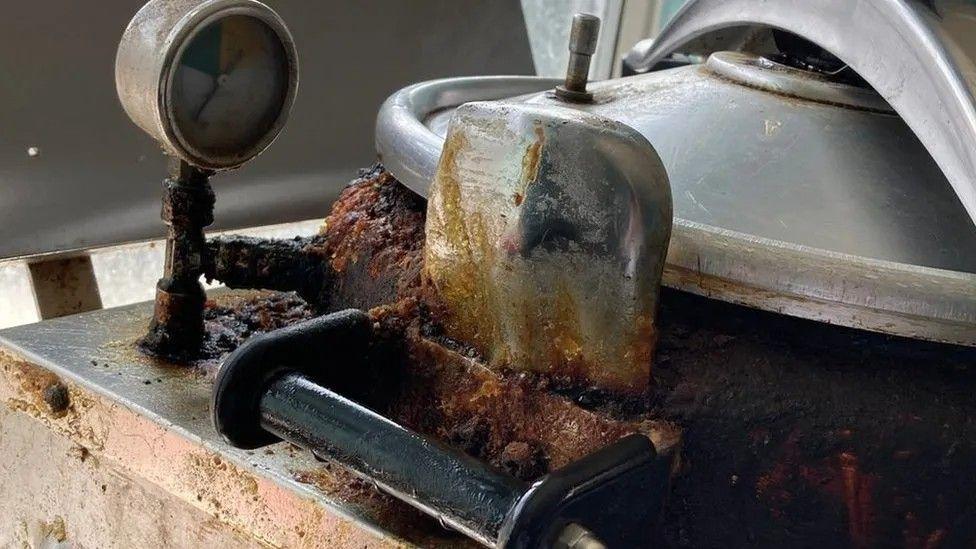
Mouldy meat and flies on food were among the filthy conditions that led to a fish and chip shop owner in Boston being fined and banned last year
Unison’s head of local government, Mike Short, said government cuts had put "an almighty squeeze" on council spending.
“Departments now have so few staff that inspections only happen when it’s too late and a problem’s been reported," he said.
"In the past, councils would offer guidance and training to new businesses to help them stay the right side of the law. This has all long gone."
Elsewhere in the region, 29% of inspections in East Riding and North Lincolnshire took place more than two years ago, while in Boston the figure was 18%, Lincoln 5% and Hull 2%.
Follow BBC Lincolnshire on Facebook, X (formerly Twitter), external, and Instagram. Send your story ideas to eastyorkslincs.news@bbc.co.uk, external
Related topics
- Published30 July 2024

- Published15 September 2023
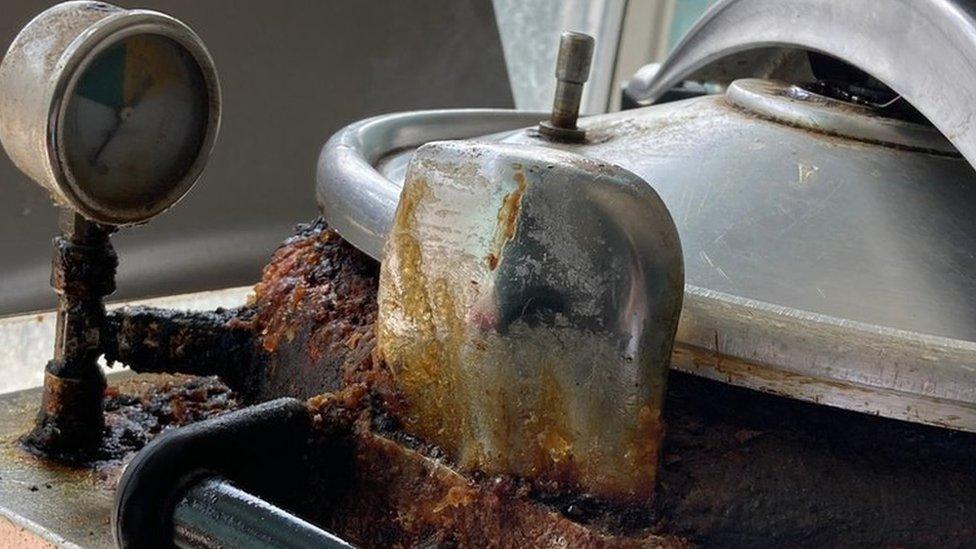
- Published16 June 2024
